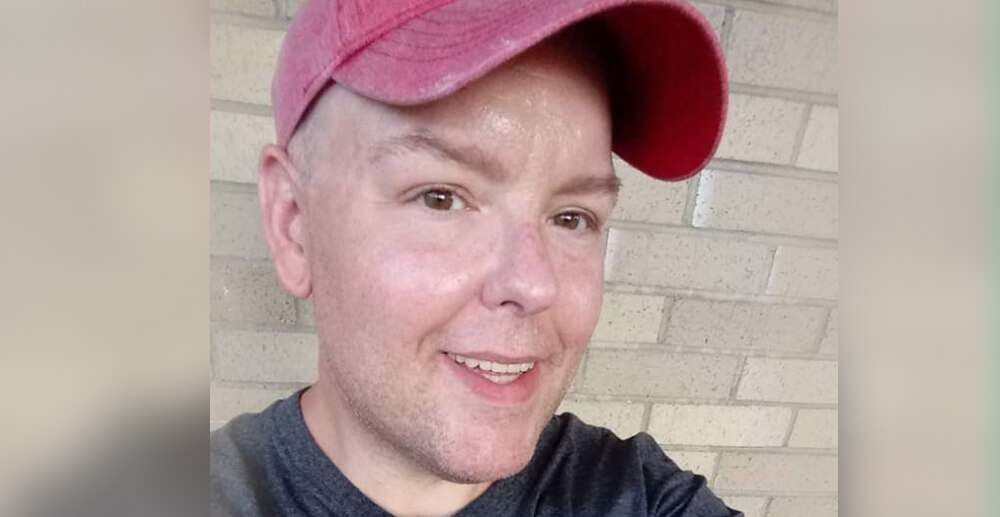I recently encountered the rather unpleasant effects of withdrawal while coming off antidepressant medication.
The worst part of it was that my withdrawal from this medication was entirely unintentional — there was a switch in my medication without my knowledge! It took me a good two weeks to realize this was the problem. Thankfully, I have a strong support network and am pretty good at advocating for myself. That helped me to care for myself during this stressful and disorienting period. I also hadn’t quite realized just how common this is, especially for people in recovery!
Earlier this month I’d been feeling off for a few days, but I couldn’t quite put my finger on what was wrong. I felt out of sorts — more so than usual. As the week progressed, I started to experience heart palpitations, difficulty sleeping, an upset stomach, changes in my appetite, diarrhea, dizziness, trouble concentrating, mood swings, anxiety, lethargy, difficulty moving, and depression. I put this down to my recent change in circumstances — moving to a new city — which I had found challenging to adjust to. But after a week I was getting concerned. My anxiety felt so out of control that it felt like my heart was in my throat, and I was seriously considering going to the ER to have an EKG done.
As I forced myself to sit on my meditation cushion one morning, after a horrendous night sleeping, it clicked. This felt like withdrawal from antidepressant medication. It felt like the time I withdrew from a really aggressive antidepressant when I had clinical depression. I felt horrendous. I was experiencing waves of what felt like small electrical surges throughout my nervous system, and I felt sick to the pit of my stomach. This is what I’m experiencing, I thought to myself.
This led to a cascade of realizations.
I checked with a friend who is a nurse and told her what I was experiencing. I explained that I had just had a new prescription filled, but that my doctor sent in a generic prescription for my medication to a new pharmacy — it didn’t even occur to me that the generic medication might change in formula between two different manufacturers. My friend confirmed my fears that not all medication — even if it is supposed to be the generic formula — is exactly the same.
I called my health insurance company, who also confirmed my fears: I’d been taking the same generic formula made by one specific manufacturer for the past 12 months, and my most recent prescription was filled with a different manufacturer. They explained that I am experiencing withdrawal effects and potentially having an adverse reaction to the ingredients within the new drug.
I called my pharmacy, and while they confirmed that was the case (with a generic prescription they can choose which manufacturer to use), they were initially really unhelpful. This is where my advocacy came in: I called back to speak to a more senior person and asked them to resolve the issue more quickly and more helpfully. It worked! That same day I had the correct medication, and I slowly began to feel like myself again.
Fortunately, I’m not alone in my experience of either the need for antidepressant medication or the unpleasant withdrawal symptoms — it’s more common than you might think, especially for people in recovery!
Depression medication
According to the National Health and Nutrition Examination Survey, 12.7 percent of Americans over the age of 12 have taken an antidepressant in the last month. Doctors prescribe this medication to help with a range of symptoms that people have been experiencing for several consecutive weeks, including anxiety, low mood, suicidal thoughts, and stress. Typically, a doctor prescribes the medication for around 6 to 12 months. The medication helps to change the way the brain uses certain neurochemicals to manage the symptoms of depression by balancing mood and how we deal with stress.
It is quite common for people in recovery to experience depression. Our brains can take months, even years, to readjust their chemistry after the damage from our substance use disorders. The experience of both conditions is clinically referred to as comorbidity.
Comorbidity in the recovery community is much higher than the general population. According to the National Institute on Drug Abuse, approximately half of those who experience mental illness also experience substance use disorder, and over 60 percent of adolescents experience both. Most common are anxiety disorders, depression, and bipolar disorders.
The reasons that people with substance use disorders also have co-occurring disorders could be:
-
Genetics
-
Environmental factors, such as trauma or living in a household where there is drug and alcohol use, and stress
-
Self-medicating mental illness
Antidepressant discontinuation syndrome
The withdrawal effects from antidepressants is called antidepressant discontinuation syndrome, and it happens in about 20 percent of people who have been regularly taking antidepressants for at least a month and who either drastically reduce their dose or suddenly stop taking it. Symptoms occur within two to four days after stopping or drastically reducing the medication and can last for one to two weeks, but in some cases symptoms can last for a year. The symptoms include:
-
Flu-like symptoms: lethargy, fatigue, headache, achiness, sweating
-
Insomnia: vivid dreams and nightmares
-
Nausea and sometimes vomiting
-
Imbalance: dizziness, vertigo, light-headedness
-
Sensory disturbance: burning, tingling, electric-like or shock-like sensations
-
Hyperarousal: anxiety, irritability, agitation, aggression, mania, jerkiness
Caring for yourself during withdrawal from antidepressant medication
Perhaps the first thing to consider is how you reduce or discontinue your medication. While I acknowledge that there may be various factors that contribute to needing to stop medication abruptly—like a change in financial circumstances or a change in medical provider—if at all possible, it’s important to make any changes to your medication under the guidance and supervision of a medical provider.
To avoid discontinuation syndrome, it is typically advised that patients taper off the medication slowly, over a period of several weeks. Some disagree that that is a slow enough taper, though. A recent study dismissed what have been the standard guidelines for years, instead encouraging people to take much longer — such as several months or years! Whichever you choose, be sure to check in with your medical provider and do what is right for your body.
Personally, I am already in the process of tapering. I agreed with my physician to reduce my medication six months ago and have since been on the lower dose. I hate to think how much more severe this recent experience would have been had I been on the higher dose!
During the past couple of weeks, I’ve worked really hard to care for myself while dealing with this experience. I did that in various ways, perhaps mostly by showing myself compassion. I knew that I won’t be able to work or socialize at my regular capacity, so I had to take it a day at a time, sometimes an hour at a time. If I needed a nap, I tried to honor that. Fortunately, I am self-employed and have very understanding clients who have allowed me to push back meetings and deadlines. I also was kind to my body by eating really nourishing food, drinking lots of water, and taking short walks in a park with my dog.
At times like this the age-old recovery saying “This too shall pass” was really helpful to remember.




